Fontan Procedure cost in India varies between INR 415750 to 748350 (USD 5000 to 9000) approx.
Fontan procedure is a surgery carried out for the treatment of Hypoplastic Left Heart Syndrome (congenital (present by birth) abnormality in children, where children possess only a single functional ventricle). In this syndrome, the oxygen-rich and the oxygen-empty blood are mixed in the circulation, causing the child to turn blue. Fontan procedure is the third stage of repair after two other operations and is carried out when a child is between 18 months and 2 years of age. The aim of this procedure is to separate the red blood (oxygen filled) from the blue blood (oxygen-empty). This is a surgery done to decompensate the pressure in the ventricle.
With tremendous medical advancement in Indian hospitals, many disease conditions are being diagnosed and treated accurately and timely. The surgery set up in India is quite good and many hospitals in North and South India have started performing Fontan surgery due to technical advancements in the medical set up. Pediatric cases from all over India and even some parts of the world are being referred to Indian hospitals, and if the cardiologists find the patients fit, Fontan surgery is carried out. With highly experienced cardiologists, cardiothoracic surgeons and nursing staff, Fontan surgery in India are gaining popularity in the medical tourism world.
Low cost of Fontan procedure as compared to abroad and availability of all the diagnostic and therapeutic facilities are few of the many advantages of a Fontan procedure in India. The low cost of Fontan surgery allows people from all over the world, especially in underdeveloped countries, to have an access to first class medical treatment. The type of Fontan hospital where the patient is treated in, treatment method, type of anesthesia or sedation, other treatments performed along with Fontan surgery and the choice of the city are major factors which determine the cost of a Fontan procedure in India.
| City | Minimum Cost (USD) | Minimum Cost (INR) | Maximum Cost (USD) | Maximum Cost (INR) |
|---|---|---|---|---|
| Mohali | USD 4500 | 374175 | USD 8100 | 673515 |
| Gurgaon | USD 5000 | 415750 | USD 9000 | 748350 |
| Mumbai | USD 5000 | 415750 | USD 9000 | 748350 |
| Faridabad | USD 4500 | 374175 | USD 8100 | 673515 |
| Ahmedabad | USD 4500 | 374175 | USD 8100 | 673515 |
| Hyderabad | USD 5000 | 415750 | USD 9000 | 748350 |
| Kochi | USD 4000 | 332600 | USD 7200 | 598680 |
| Noida | USD 5000 | 415750 | USD 9000 | 748350 |
| Bangalore | USD 5000 | 415750 | USD 9000 | 748350 |
Treatment cost
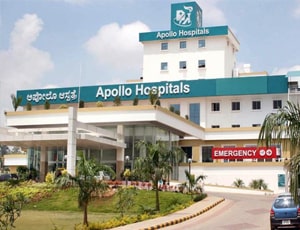
Types of Fontan Procedure in Apollo Hospitals Bannerghatta and its associated cost
| Treatment Option | Approximate Cost Range (USD) | Approximate Cost Range (INR) |
|---|---|---|
| Fontan Procedure (Overall) | 8588 - 11021 | 681130 - 907962 |
| Bidirectional Glenn Procedure (Stage II Fontan) | 8583 - 11972 | 729640 - 974236 |
| Hemi-Fontan Procedure (Hemi-Fontan or Completion Fontan) | 8372 - 11009 | 686686 - 908543 |
| Modified Fontan Procedures | 8470 - 11258 | 720487 - 953633 |
DOCTORS IN 13 SPECIALITIES
FACILITIES & AMENITIES
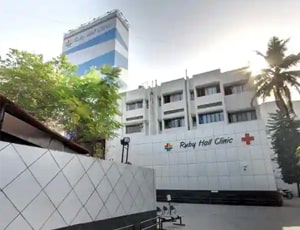
Types of Fontan Procedure in Ruby Hall Clinic and its associated cost
| Treatment Option | Approximate Cost Range (USD) | Approximate Cost Range (INR) |
|---|---|---|
| Fontan Procedure (Overall) | 7018 - 9349 | 572074 - 757731 |
| Bidirectional Glenn Procedure (Stage II Fontan) | 7279 - 9831 | 605378 - 812888 |
| Hemi-Fontan Procedure (Hemi-Fontan or Completion Fontan) | 7154 - 9359 | 587629 - 764750 |
| Modified Fontan Procedures | 7309 - 9476 | 583882 - 772183 |
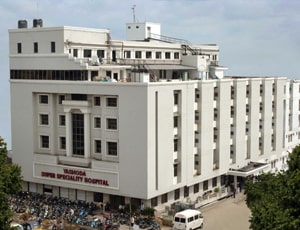
Types of Fontan Procedure in Yashoda Hospital, Malakpet and its associated cost
| Treatment Option | Approximate Cost Range (USD) | Approximate Cost Range (INR) |
|---|---|---|
| Fontan Procedure (Overall) | 7596 - 10170 | 623314 - 830099 |
| Bidirectional Glenn Procedure (Stage II Fontan) | 7935 - 10694 | 647817 - 875932 |
| Hemi-Fontan Procedure (Hemi-Fontan or Completion Fontan) | 7699 - 10179 | 630996 - 832041 |
| Modified Fontan Procedures | 7824 - 10323 | 640620 - 845945 |

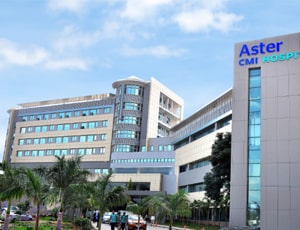
Types of Fontan Procedure in Aster CMI Hospital and its associated cost
| Treatment Option | Approximate Cost Range (USD) | Approximate Cost Range (INR) |
|---|---|---|
| Fontan Procedure (Overall) | 7595 - 10170 | 621453 - 828535 |
| Bidirectional Glenn Procedure (Stage II Fontan) | 7949 - 10703 | 649194 - 875903 |
| Hemi-Fontan Procedure (Hemi-Fontan or Completion Fontan) | 7748 - 10171 | 629779 - 830406 |
| Modified Fontan Procedures | 7817 - 10323 | 643909 - 845273 |
DOCTORS IN 13 SPECIALITIES
FACILITIES & AMENITIES
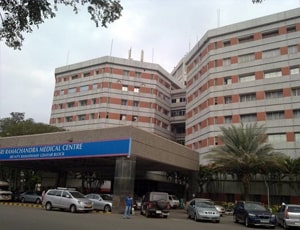
Types of Fontan Procedure in Sri Ramachandra Medical Centre and its associated cost
| Treatment Option | Approximate Cost Range (USD) | Approximate Cost Range (INR) |
|---|---|---|
| Fontan Procedure (Overall) | 7601 - 10178 | 623298 - 831203 |
| Bidirectional Glenn Procedure (Stage II Fontan) | 7939 - 10652 | 646787 - 871138 |
| Hemi-Fontan Procedure (Hemi-Fontan or Completion Fontan) | 7685 - 10199 | 635165 - 831419 |
| Modified Fontan Procedures | 7820 - 10362 | 638010 - 845845 |
DOCTORS IN 10 SPECIALITIES
FACILITIES & AMENITIES
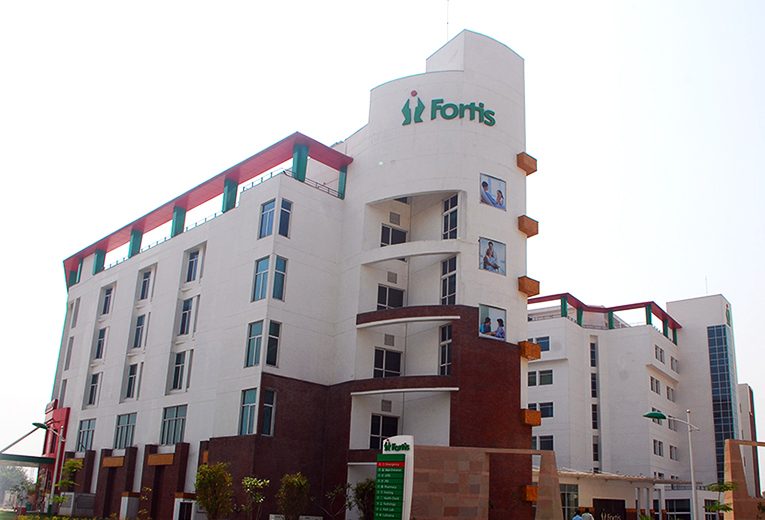
Types of Fontan Procedure & Its Cost at Fortis Hospital, Shalimar Bagh
| Treatment Option | Approximate Cost Range (USD) | Approximate Cost Range (INR) |
|---|---|---|
| Atriopulmonary Fontan | 8,780 - 9,980 | 719960 - 818360 |
| Lateral Tunnel Fontan | 9,080 - 10,280 | 744560 - 842960 |
| Extracardiac Fontan | 9,580 - 10,780 | 785560 - 883960 |
Factors affecting Fontan Procedure cost in Fortis Hospital, Shalimar Bagh
| Cost Factors | Cost Range (USD) | Cost Range (INR) |
|---|---|---|
| Consultations with specialists | 300 - 500 | 24600 - 41000 |
| Surgeon's fees | 2,800 - 3,200 | 229600 - 262400 |
| Anesthesia fees | 600 - 900 | 49200 - 73800 |
| Preoperative testing | 200 - 300 | 16400 - 24600 |
| Medical equipment and supplies | 400 - 600 | 32800 - 49200 |
| Operating room fees | 1,000 - 1,200 | 82000 - 98400 |
| Medications | 200 - 300 | 16400 - 24600 |
| Nursing care | 500 - 700 | 41000 - 57400 |
| Intensive care unit (ICU) charges | 1,500 - 1,700 | 123000 - 139400 |
| Administrative fees | 100 - 200 | 8200 - 16400 |
| Room charges (Per day) | 300 - 500 | 24600 - 41000 |
| Follow-up Visits | 100 - 200 | 8200 - 16400 |
| Rehabilitation & Physical therapy (Per session) | 50 - 100 | 4100 - 8200 |
DOCTORS IN 14 SPECIALITIES
FACILITIES & AMENITIES
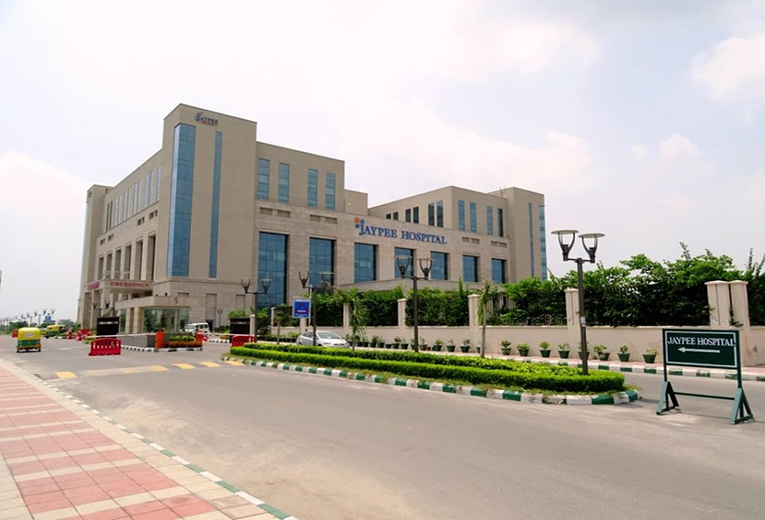
The cost for Fontan Procedure ranges from USD 8360 - 9300 in Jaypee Hospital
Jaypee Hospital located in Noida, India is accredited by ISO, NABH, NABL. Also listed below are some of the most prominent infrastructural details:
DOCTORS IN 14 SPECIALITIES
FACILITIES & AMENITIES
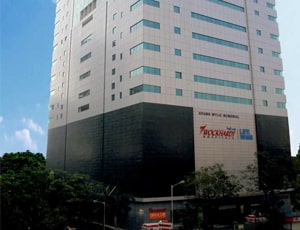
Types of Fontan Procedure in Wockhardt Hospital - A New Age Hospital and its associated cost
| Treatment Option | Approximate Cost Range (USD) | Approximate Cost Range (INR) |
|---|---|---|
| Fontan Procedure (Overall) | 7644 - 10129 | 626954 - 835509 |
| Bidirectional Glenn Procedure (Stage II Fontan) | 7955 - 10634 | 647736 - 872257 |
| Hemi-Fontan Procedure (Hemi-Fontan or Completion Fontan) | 7686 - 10107 | 633435 - 835386 |
| Modified Fontan Procedures | 7822 - 10312 | 638862 - 850276 |
DOCTORS IN 12 SPECIALITIES
FACILITIES & AMENITIES
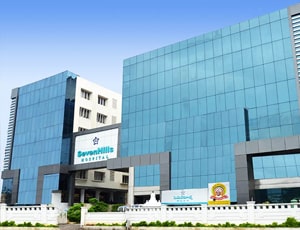
Types of Fontan Procedure in Seven Hills Hospital and its associated cost
| Treatment Option | Approximate Cost Range (USD) | Approximate Cost Range (INR) |
|---|---|---|
| Fontan Procedure (Overall) | 8338 - 11147 | 676687 - 933318 |
| Bidirectional Glenn Procedure (Stage II Fontan) | 8760 - 12054 | 716090 - 958333 |
| Hemi-Fontan Procedure (Hemi-Fontan or Completion Fontan) | 8662 - 11418 | 686095 - 904234 |
| Modified Fontan Procedures | 8831 - 11627 | 696574 - 928136 |
DOCTORS IN 11 SPECIALITIES
FACILITIES & AMENITIES
Aakash Healthcare Super Speciality Hospital located in New Delhi, India is accredited by NABH. Also listed below are some of the most prominent infrastructural details:
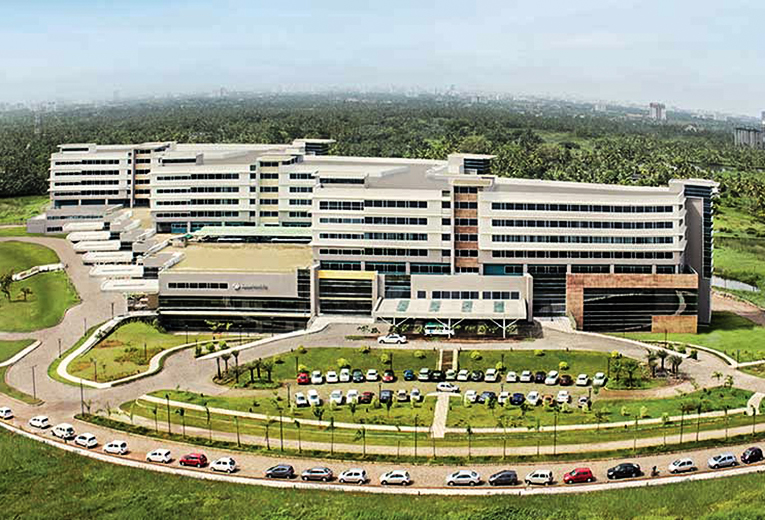
Types of Fontan Procedure in Aster Medcity and its associated cost
| Treatment Option | Approximate Cost Range (USD) | Approximate Cost Range (INR) |
|---|---|---|
| Fontan Procedure (Overall) | 7576 - 10105 | 624019 - 832312 |
| Bidirectional Glenn Procedure (Stage II Fontan) | 7889 - 10621 | 647119 - 870441 |
| Hemi-Fontan Procedure (Hemi-Fontan or Completion Fontan) | 7680 - 10133 | 630183 - 831914 |
| Modified Fontan Procedures | 7811 - 10368 | 639369 - 846283 |
DOCTORS IN 13 SPECIALITIES
FACILITIES & AMENITIES
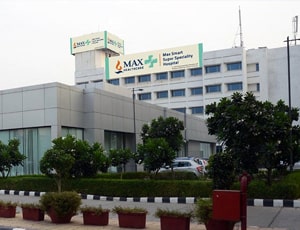
Types of Fontan Procedure in Max Smart Super Speciality Hospital and its associated cost
| Treatment Option | Approximate Cost Range (USD) | Approximate Cost Range (INR) |
|---|---|---|
| Fontan Procedure (Overall) | 7591 - 10121 | 624636 - 829397 |
| Bidirectional Glenn Procedure (Stage II Fontan) | 7879 - 10678 | 646461 - 873269 |
| Hemi-Fontan Procedure (Hemi-Fontan or Completion Fontan) | 7729 - 10198 | 635116 - 834897 |
| Modified Fontan Procedures | 7782 - 10393 | 643652 - 850554 |
DOCTORS IN 12 SPECIALITIES
FACILITIES & AMENITIES
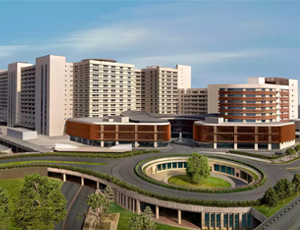
The Amrita Institute of Medical Sciences and Research Centre was established in 1998 by Mata Amritababdamayi Devi. It has 7 branches all over India and is accredited by ISO, NABH, and NABL. The hospitals offer a wide range of specialty and primary healthcare and medical services. It has a team of 800 doctors along with 2600 plus beds including 534 critical care beds and 81 specialties. The hospitals offer advanced and cutting-edge medical treatments ranging from cardiac sciences to radiation oncology. It has 12 super-specialty departments along with 45 other departments.
Asia’s first Bilateral Hand Transplant Surgery was done at Amrita Hospital, Kochi, in 2015. Many awards have been received by the hospitals such as National Healthcare Excellence Award for Best Hospital (CSR Category) in India by FICCI in 2013, India Healthcare Award for the Paediatric Heart Program in 2014, British Medical Journal Award for the Best Surgical Team in South Asia, 2015, and FICCI Healthcare Excellence Awards for Patient Safety and Innovation in Medical Technology. What truly sets the medical services provided by AIMS is the commitment to treating every patient with the utmost kindness, respect, and empathy. The goal is to empower patients and take charge of their well-being through healthcare, medical technologies, and education that is patient-centric for early intervention and prevention.
Amrita Hospital in Faridabad is a multispeciality hospital that provides patients with emergency, consultation, diagnostic, rehabilitative treatment, and recovery. It comprises centers for Radiation Oncology, Neurosciences, Bone diseases, Gastro-sciences, Mother and Child care, Cardiac sciences, and Trauma transplants through fully-automated innovative laboratories, the latest cardiac and cath labs, and advanced medical imaging. It houses 670 faculty members, 4500 supporting staff, and a multidisciplinary children’s infirmary with fetal and maternal medicines and pediatric subspecialties. The hospital also runs India’s most comprehensive facility for infectious diseases.
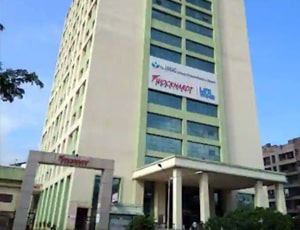
Types of Fontan Procedure in Wockhardt Hospital, Umrao and its associated cost
| Treatment Option | Approximate Cost Range (USD) | Approximate Cost Range (INR) |
|---|---|---|
| Fontan Procedure (Overall) | 7602 - 10126 | 625479 - 836340 |
| Bidirectional Glenn Procedure (Stage II Fontan) | 7894 - 10649 | 646174 - 877323 |
| Hemi-Fontan Procedure (Hemi-Fontan or Completion Fontan) | 7732 - 10154 | 629559 - 828910 |
| Modified Fontan Procedures | 7820 - 10347 | 642991 - 845641 |
DOCTORS IN 13 SPECIALITIES
FACILITIES & AMENITIES
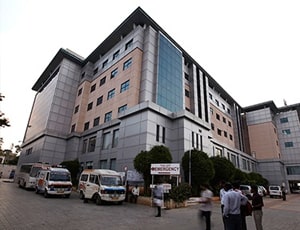
Types of Fontan Procedure in BGS Gleneagles Global Hospitals and its associated cost
| Treatment Option | Approximate Cost Range (USD) | Approximate Cost Range (INR) |
|---|---|---|
| Fontan Procedure (Overall) | 8619 - 11055 | 676588 - 931721 |
| Bidirectional Glenn Procedure (Stage II Fontan) | 8616 - 11731 | 722349 - 962680 |
| Hemi-Fontan Procedure (Hemi-Fontan or Completion Fontan) | 8532 - 11174 | 700564 - 930744 |
| Modified Fontan Procedures | 8485 - 11661 | 709728 - 958153 |
DOCTORS IN 14 SPECIALITIES
FACILITIES & AMENITIES
Fontan procedure is a surgery for individuals born with only one functioning heart ventricle. Following the surgery, the pulmonary artery is the only blood vessel that receives oxygen-poor blood from the body, bypassing the heart chambers. Most patients live for 30 years or more following the surgery.
Children aged 2 to 15 (generally between 3 and 5) with a single ventricle condition may need a Fontan procedure. However, it’s not suitable for everyone. A healthcare provider will determine if your child is a good candidate by ensuring their working ventricle is strong enough to pump effectively and their lungs are healthy enough to handle passive blood flow.
Following are the different types of Fonton Procedures:
On the day of surgery, your child will be given anesthesia to be sure that they sleep deeply and pain-free. In the operating room, the surgeon will link your child to a machine that temporarily takes over the functions of the heart and lungs. Afterward, the surgeon will connect the inferior vena cava to the pulmonary artery, redirecting oxygen-poor blood from the lower body to the lungs.
Occasionally, the surgeon may perform additional heart treatments, such as enlarging the gap between the atria or repairing a heart valve. Depending on your child's heart and lung condition, a small opening may also be created in the tube connecting the inferior vena cava to the pulmonary artery.
Post-surgery, the Patient is transferred to the recovery room for vital sign monitoring for a few hours before being moved to the cardiac ward once stable. Painkillers may be administered, and a hospital stay typically lasts a few days with restricted eating and drinking initially. Bowel movements must normalize before transitioning to a light diet and fluids, usually taking two to three days. Medications and fluids are administered via IV until the normal diet resumes. Dressings are changed daily, and most patients can resume normal activities within three months, gradually increasing activity levels without overexertion.
Ask your healthcare adviser for the best multiple options and choose the one that meets your expectations
The cost of Fontan Procedure procedure starts from USD 10000 in India. Many multispeciality hospitals which are NABH, JCI certified are approved to operate a Fontan Procedure in India
The cost of Fontan Procedure in India may differ from one medical facility to the other. There are many hospital that cover the cost of pre-surgical investigations of the patient in the treatment package. Typically, the package cost of Fontan Procedure in India includes the expenses related to the surgeon's fee, anesthesia, hospital, meals, nursing and ICU stay. Extended hospital stay, complications after the surgery or new diagnosis may affect the overall cost of Fontan Procedure in India.
There are many hospitals that perform Fontan Procedure in India. Some of the most renowned hospitals for Fontan Procedure in India include the following:
After Fontan Procedure in India, the patient is supposed to stay in guest house for another 30 days. This is important to ensure that the surgery was successful. During this time, control and follow-up tests take place to check for medical fitness.
There are certain expenses additional to the Fontan Procedure cost that the patient may have to pay for. These are the chanrges for daily meals and hotel stay outside the hospital. The per day extra expenses in India per person are about USD 50 per person.
Some of the best cities in India which offer Fontan Procedure are:
Patients who are interested in availing telemedicine consultation before they travel for Fontan Procedure in India can opt for the same. There are many Fontan Procedure surgeons who offer video telemedicine consultation, including the following:
| Doctor | Cost | Schedule Your Appointment |
|---|---|---|
| Dr. Bikram K Mohanty | USD 35 | Schedule Now |
| Dr. Ashish Chauhan | USD 14 | Schedule Now |
| Dr. Sumit Narang | USD 14 | Schedule Now |
After the Fontan Procedure takes place, the average duration of stay at the hospital is about 7 days. The patient is subjected to several biochemistry and radiological scans to see that everything is okay and the recovery is on track. After making sure that patient is clinically stable, discharge is planned.
The average rating for Fontan Procedure hospitals in India is 3.9. This rating is calculated on the basis of different parameters such as attitude of the nurses, cleanliness, quality of food and the pricing policy.
There are more than 49 hospitals that offer Fontan Procedure in India. Such clinics have the required infrastructure and a dedicated unit where patients can be treated. Such hospitals follow all legal protocols and guidelines as specified by the local medical affairs body when it comes to the treatment of international patients.
Some of the renowned doctors for Fontan Procedure in India are: